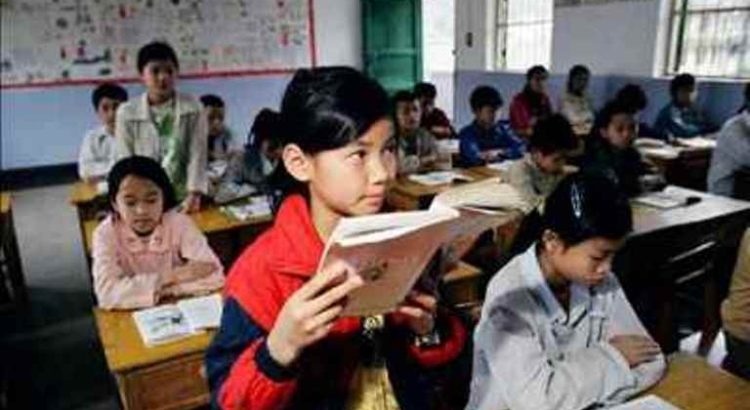China/Junio de 2017/Fuente: Voanews
Resumen: Las tensiones entre los gobiernos estadounidense y chino y sus fuerzas armadas no son infrecuentes. Pero la relación entre los dos países está mejorando en algunas áreas como las artes y la educación. Los partidarios de esta creciente relación creen que esto está produciendo beneficios económicos y culturales para los ciudadanos de ambos países. Los opositores en los Estados Unidos, sin embargo, lo ven como peligroso. Susan Pertel Jain es la directora ejecutiva de la Universidad de California, Instituto Confucio de Los Ángeles. Ella dice que los padres estadounidenses quieren que sus hijos aprendan chino. «Si saben chino, si saben inglés, si tienen cierta experiencia cultural, experiencia internacional – que puede realmente ponerlos en un diverso lugar.» China ha estado pagando por programas de cultura y lenguaje chino a través de los Institutos Confucio.
Tensions between the American and Chinese governments and their militaries are not uncommon. But the relationship between the two countries is improving in some areas such as the arts and education.
Supporters of this growing relationship believe this is producing economic and cultural benefits for citizens of both countries. Opponents in the United States, however, see it as dangerous.
Susan Pertel Jain is the executive director of the University of California, Los Angeles Confucius Institute. She says American parents want their children to learn Chinese.
“If they know Chinese, if they know English, if they have some cultural experience, international experience — that can really put them in a different place.”
China has been paying for Chinese language and culture programs through the Confucius Institutes.
Carol Chen teaches Mandarin immersion classes to kindergarten students at Broadway elementary school, a public school in Los Angeles. She says the University of California, Los Angeles Confucius Institute has been a good resource for her school.
“One of the years, they actually brought in Chinese folk culture tradition to the campus.”
China has opened almost 500 Confucius Institutes throughout the world. Most of them are on university campuses.
Perry Link, of the University of California, Riverside has been a long-time critic of China’s efforts. He says Confucius Institutes are an example of China’s soft power.
“Hard power is military things. Soft power is cultural or educational things that cause people in other countries to view one’s own country in a more friendly way.”
Link says having Confucius Institutes on university campuses is troubling because it limits academic freedom to discuss China’s human rights issues.
“It’s induced self-censorship — that is ‘We are going to give you these funds and you can invite speakers about China and the fund comes from Beijing and you know that and we know that.’ Now, as the director of a Confucius Institute, do you think ‘Oh, I’ll invite the Dalai Lama’ to speak? No. Of course you don’t do that…Beijing wishes the Confucius Institutes would completely grab everyone’s sympathies and attention. I don’t think that’s happened.”
But Susan Pertel Jain says the institute does not censor itself.
“Whether it’s artists that we present there who were active in sort of (an) anti-government movement or whether it’s the screening of films that are maybe not officially approved by the government, we don’t shy away from that, but what we always tell our colleagues in China is that we promise to always present everything in a fair and balanced way.”
Fuente: https://learningenglish.voanews.com/a/us-and-china-increase-arts-and-education-ties/3881748.html







 Users Today : 146
Users Today : 146 Total Users : 35459741
Total Users : 35459741 Views Today : 241
Views Today : 241 Total views : 3418213
Total views : 3418213